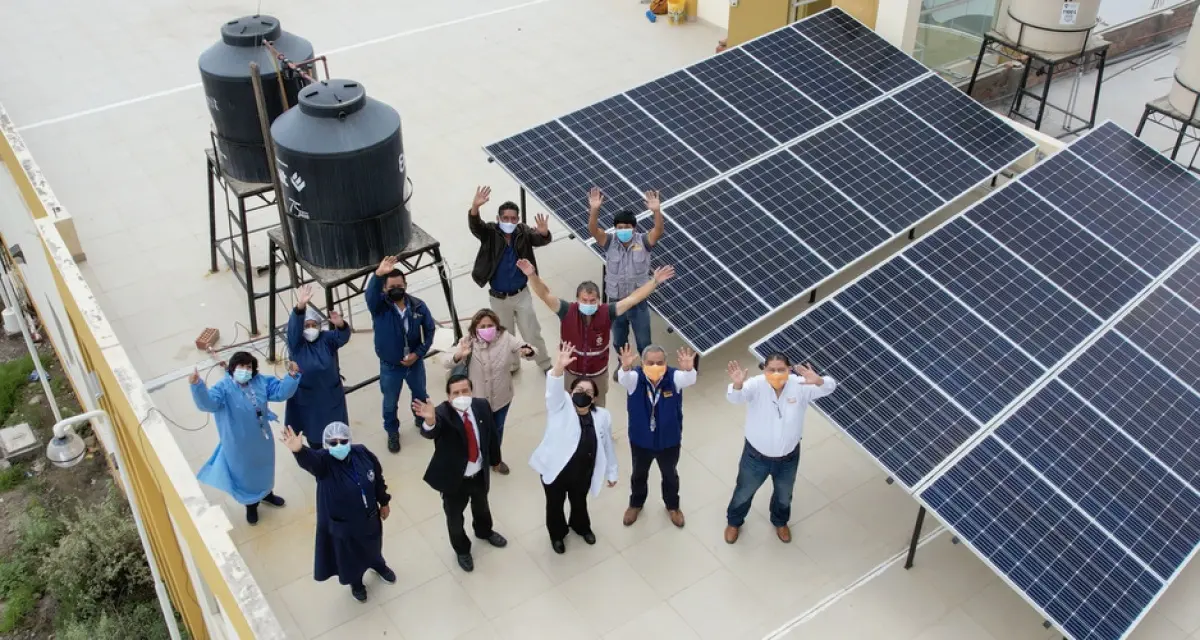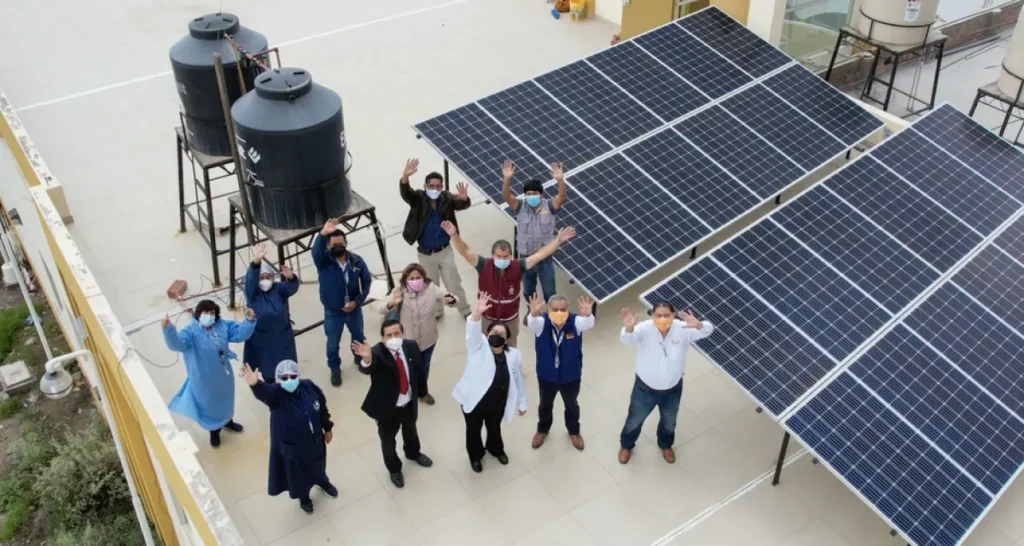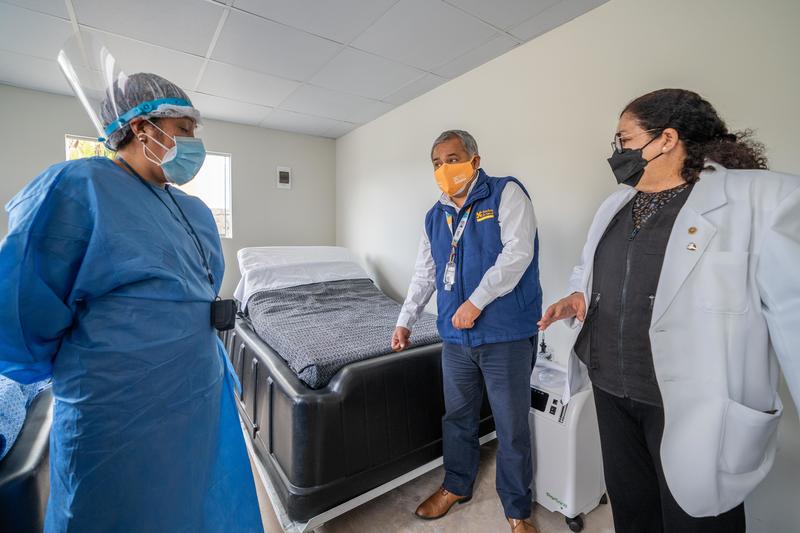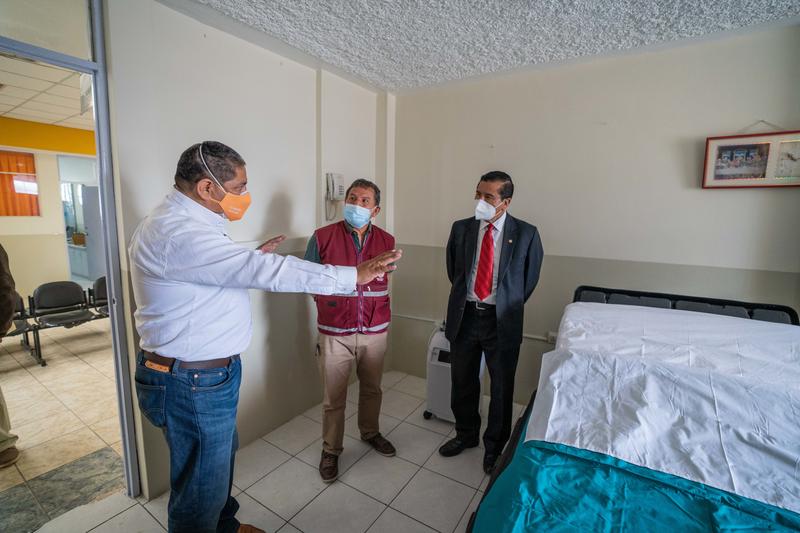Solar Panels Power Clinics in Peru

Renewable energy ensures reliable power for lifesaving care in remote regions
Posted on June 14, 2022

When the power goes out in a hospital, the lights aren’t the only thing that could shut off.
A power outage could disrupt surgeries and disable lifesaving medical equipment, including oxygen concentrators keeping patients alive.
In Peru, where power outages are common in impoverished areas, many hospitals and health centers face the daunting task of delivering care amid unstable electricity. Most are powered by generators, which run on fuel that can be costly and in short supply.
Stable electricity is essential in care delivery, enabling health workers to run medical devices like heart monitors, quickly heat water to disinfect surgical tools, refrigerate medication and vaccines, and carry out countless other tasks.
To tackle these challenges, Socios En Salud, as Partners In Health is known in Peru, plans to install solar panels at four health centers across the country. These solar panels come as part of Socios En Salud’s ongoing work to strengthen Peru’s health system in partnership with the Ministry of Health.
The first solar panels were installed in March at a health center in the southern Arequipa region. More panels will be installed in June and July at health centers in Ucayali, a region in the Amazon rainforest, and Cuzco, a city in the Andes mountains.
Renewable Energy
Peru is one of the most biologically diverse countries in the world, with climate zones ranging from the Andes mountains to the Amazon rainforest. But that biodiversity has come under threat in recent years due to climate change—a global phenomenon of long-term shifts in temperatures and weather patterns due to human activity, primarily the burning of fossil fuels.
In the last 15 years, Peru has lost 22% of its glaciers. Last year, it was among the 10 countries with the most tropical primary forest loss. As the ice melts, forests dwindle, and sea levels rise, communities already living on the margins—including Peru’s indigenous peoples, who have cared for the environment for millennia—are most at risk of displacement, impoverishment, and lack of access to health care.
But there are ways to counter the effects of climate change.
Renewable energy such as solar, which currently accounts for just 1.1% of the world’s energy, will be crucial in responding to climate change and correcting global inequities in energy access, according to the United Nations. More than 80% of the world’s energy comes from fossil fuels, which emit greenhouse gases that contribute to global warming.
Solar panels work by converting sunlight into electrical energy. Some panels, like those installed by Socios En Salud, store this energy in a battery, which can be used when sunlight isn’t available. As a form of renewable energy, solar panels are more sustainable than traditional energy sources like a generator, which runs on fuel and emits greenhouse gases. They’re also more cost-effective in the long term.

Powering Care
Peru is among the countries with the highest potential for solar energy, which relies on direct sunlight. But few health centers in Peru have solar panels due to the upfront costs of installation and technical expertise required.
Socios En Salud began working with the Ministry of Health earlier this year to buy solar panels at a low-cost and fund installations at four health centers across the country, as well as providing training on use and maintenance. The first solar panels were installed in March at a health center in Yura, a rural district in the southern Arequipa region.
At the Ciudad de Dios health center, 48 solar panels now bolster the electricity from the grid, which on its own was unreliable and lacked a backup source of energy to support medical devices like oxygen concentrators during a power outage. Some oxygen concentrators use more electricity than a refrigerator.
In addition to supplying more reliable electricity, the solar panels will also help the health center save money in the long run.
“This renewable energy will reduce the high costs of electricity, representing sustainable and economic development in the region,” says Dr. Leonid Lecca, executive director of Socios En Salud.
Annual savings from the solar panels are projected to be 26,000 soles ($6,995), with average monthly savings of 2,167 soles ($583).

Building Capacity
Access to electricity has dramatically increased in Peru over the past 15 years, with 96% of the country’s rural population having electricity. But the quality of that electricity varies widely, and the most rural and impoverished areas continue to lack reliable electricity, sometimes even lacking access to the national grid.
Before the solar panels were installed, Masisea Health Center in Ucayali did not have access to reliable electricity. Ucayali, a region in the Amazon rainforest, is home to 18 indigenous groups and has a poverty rate as high as 14%; the region has also been affected by drug trafficking and guerilla warfare.
During emergencies, the health center there used a generator, which was expensive and ran on fuel. The solar panels, installed by Socios En Salud in early June, now provide electricity that is reliable and sustainable, ultimately saving lives.
“One of the great health problems in Peru is access to health,” says Dr. Alvaro Lujan, who is coordinating Socios En Salud’s solar energy work. “The use of solar panels eliminates this gap…By having adequate electricity, we expand the capacity of the health system, allowing doctors to use the necessary equipment for patient care.”
Originally published on pih.org



